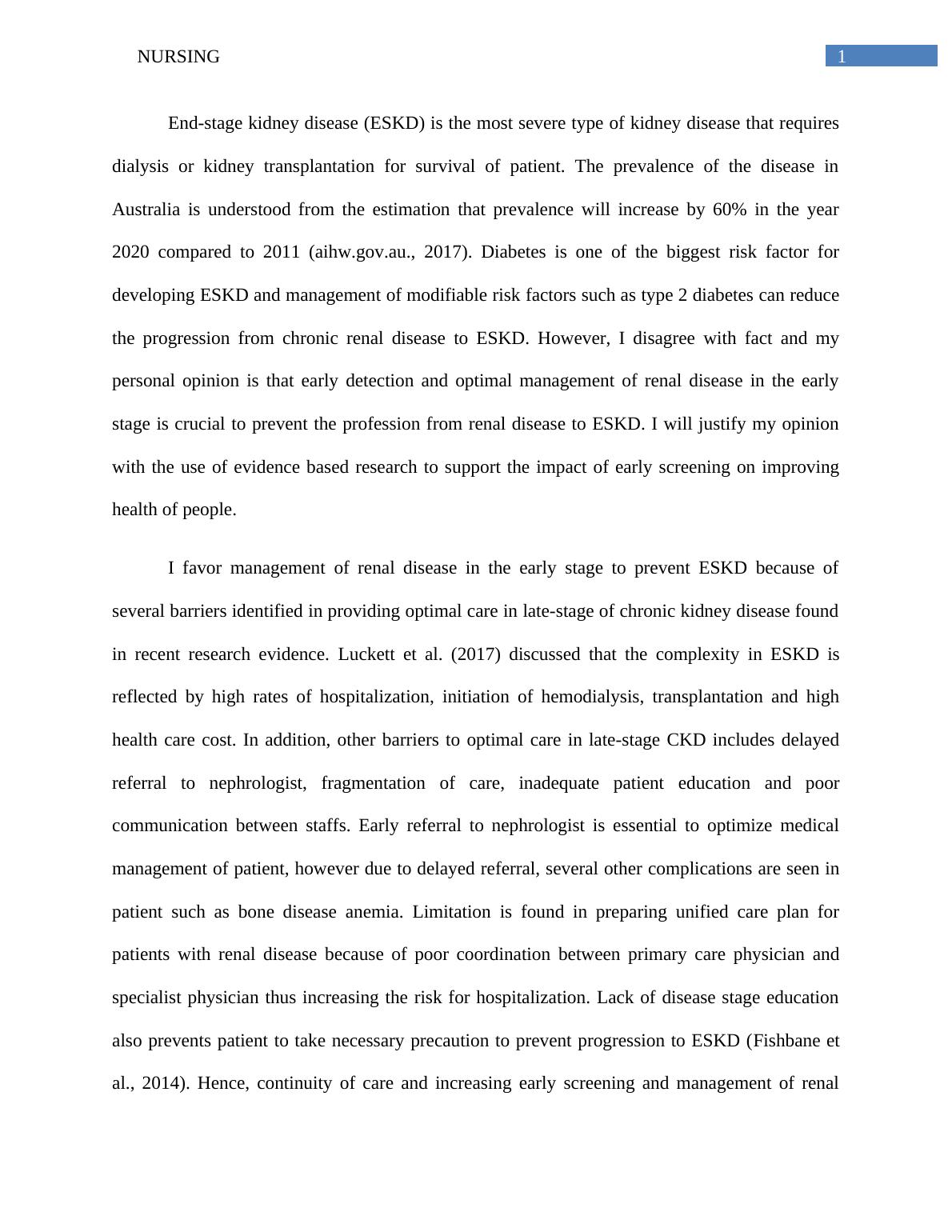End-Stage Kidney Disease (ESKD)
Added on 2021-06-18
4 Pages763 Words76 Views
End of preview
Want to access all the pages? Upload your documents or become a member.
Nephrology: Roles and Responsibilities of Nephrologists
|5
|694
|186
Interprofessional Collaborative Practices in Chronic Kidney Disease Management
|11
|2399
|481
Expanding the Kidney Transplant Business in UAE
|14
|2812
|69
Role of Nurse Practitioners in Renal Care: Skills, Challenges and Standards
|11
|3737
|81
Palliative Care Practice: Improving Quality of Life for Patients and Families
|6
|1550
|250
Chronic Illness Management - Strategies, Treatment, and Complications
|9
|1779
|330


